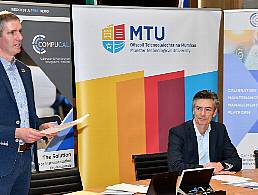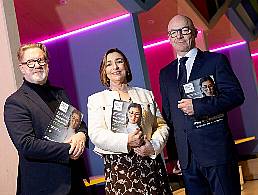In the tech industry where upskilling is so important to keep on top of emerging trends, microcredentials could prove to be a game-changer.
The idea of microcredentials, or short, mini courses often designed by universities and industry, has really caught on in Ireland in recent years.
Last year, Dr Lynn Ramsey, the leader of a multimillion-euro education project called MicroCreds spoke to SiliconRepublic.com about the significance of Irish universities beginning to embrace short courses, also known as ‘microcredentials’.
What are microcredentials?
Ramsey explained the concept of microcredentials as being like “bite-size” versions of longer university courses. As part of the MicroCreds initiative, the Government pumped €12.3m into rolling out a series of short courses that are now available in colleges across the country.
But as Ramsey said, microcredentials are slightly different from regular three or four-year degrees in that they have been designed to fulfil a specific need for a specific skills gap in the employment market.
Many microcredentials courses have been co-designed by industry. In fact, the MicroCreds project in Ireland had its own enterprise advisory group comprised of people from organisations such as CPL and IDA Ireland.
This is more of an indicator than anything that microcredentials are not so much focused on learning for learning’s sake, but on learning for the sake of gaining a new skill.
Unlike regular university degrees, microcredentials are often delivered in a flexible way – think online and on-demand lectures – for learners who are already working. They are add-ons to supplement education a person might already have under their belt.
The MicroCreds programme started earlier this year with a number of partner universities. As the concept takes hold in Ireland, you can expect that employers will begin to offer their staff a chance to upskill by enrolling in one of these courses.
From an employer’s point of view, paying for an employee to do a short course is much cheaper than paying for them to do a full degree. It means they can learn a new skill fast and put it to use.
In the tech industry where upskilling is so important to keep on top of emerging trends, microcredentials could prove a game-changer.
Microcredentials in Ireland and Europe
Many of the courses on MicroCreds’ Ireland website are tech-focused. Here is a list of some of the sci-tech choices available currently:
- 12-week hybrid low carbon power technology course by Trinity College Dublin
- 12-week online introduction to programming in Python by University of Galway
- 12-week on campus coagulation management for healthcare at University College Cork
- 12-week online advanced data programming with R by University College Dublin
- 12-week online cybersecurity law and regulations by University of Limerick
- Nine-week blended data science for finance by Dublin City University
That is just a very brief taster of what you can find; there are courses on everything from aircraft leasing to beekeeping.
The National College of Ireland is also offering a number of microcredential courses such as a five-week course in the science of decision-making and a nine-week course in business intelligence.
It is not just Irish universities that are exploring the potential of microcredentials. This being the European Year of Skills – basically a year the EU has earmarked for campaigns focused on the importance of learning new skills – many European countries are adding small accredited courses to their colleges.
Learners who complete microcredentials get ECTS certified just like any other higher education course. That means their skills are recognised by all European institutions and most employers.
Not a new concept, but a new(ish) word
It’s worth noting that while the expression microcredentials is relatively new, the concept is not. Quality and Qualifications Ireland (QQI) pointed out as much in a report titled The Boom in Micro-Credentials which was published as far back as 2021.
“While the term microcredential is new, the infrastructure for small qualifications has long been established in Irish higher education. What is really new for Ireland is that the concept of small HE qualifications has gained international acceptance and therefore recognition,” it said.
Institutions like QQI and the Irish Universities Association, which runs MicroCreds, have been looking into the topic for a long time now.
QQI’s report functioned as an “early exploration” into the value of microcredentials in higher education. At the time the report was published, QQI said the majority of such courses in Ireland were made at NFQ level 6 with 10-30 ECTS, and were delivered on a part-time basis.
It also said that the provision of microcredentials was growing and diversifying to target a wider group of learners “who are becoming more diverse in terms of age and gender”.
As MicroCreds continues to expand in Ireland, learners and employers alike will be able to reap the benefits – convenience, expediency and practicality.
10 things you need to know direct to your inbox every weekday. Sign up for the Daily Brief, Silicon Republic’s digest of essential sci-tech news.




